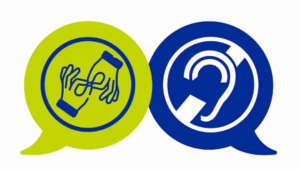As you start interpreting, you’ll find that using medical terminology is a vital part of your new career. This is self-evident: medical interpretation work in hospitals, clinics, doctors’ offices, and a variety of other places patients seek consultation. Thus, medical interpretations must use proper medical terminology whenever possible. In this article, we’ll address some of the difficulties of learning and interpreting medical terminology.

Starting Your Career as a Medical Terminology Interpreter
Starting a career as a medical terminology interpreter, is a daunting prospect: you’re suddenly in an entirely new field. New challenges are a natural part of this transition. One of the challenges you’ll likely face is that of learning medical terminology. Self-study is vital to interpreting: between assignments, taking time to build your knowledge base will help you immensely. Learning medical terminology is part of gaining confidence and skill as a new interpreter. When you approach a session with a clear understanding of basic medical terms, you’re free to focus on other aspects. The medical terminology is there; it becomes a matter of being sure that you’re interpreting accurately and with proper procedure.
Having an understanding of medical terminology also contributes to giving the patient and provider a standardized experience. The interpreting industry is notoriously unregulated—but that’s changing. Training programs emphasizing proper interpreting procedure are becoming more and more common. In an interpreting session, the ideal role of the interpreter is to be a language conduit. Essentially, you’re a much better version of an AI translation tool: you provide crucial context for the language you’re interpreting. Whenever possible, an interpreter’s goal should be that they be as unobtrusive as possible. This allows for natural language flow and conversation: back and forth as though both parties speak the same language. The flow is interrupted when an interpreter must interject to make a clarification, look up a word, or admit mistakes. All of these are also vital to the role of the interpreter but should be as sparingly used as possible.
Understanding and Using Medical Terminology as an Interpreter
It’s easy to avoid two of these forms of interjection: looking up a word and admitting mistakes. Having a basic knowledge of medical terminology makes it far easier to remain in your conduit role for longer stretches. When you must look up a term, having a dictionary in your interpreting bag is a must. At Global Arena, we highly recommend that you carry a paper dictionary with you, rather than using an app. Though the client’s aware that you’re only bringing out your phone to check the dictionary, it’s still seen as unprofessional. This is one of the most common client complaints we receive. A paper dictionary is quick, easy, and an invaluable tool.
Interjecting to advise the parties that you have made a mistake is a reality of interpreting in a dynamic field, including any medical appointment. As with making a clarification or looking up a word in the dictionary, it requires a “role-switch.” Step out of your role as language conduit and into your role as clarifier, then back as quickly as possible. Be sure that both parties are fully aware of what’s happening by interpreting standard phrases into both languages. For example, say “Excuse me, the interpreter would like to admit a mistake.” Interpret this into your target language. Clarify the mistake, interpret any back-and-forth, and step back into your role as conduit. If this doesn’t happen naturally, say “The interpreter is ready to resume the session.” This is a clear signal to both parties.
Honing Your Skills as a Medical Interpreter
One of the most important parts of using medical terminology as an interpreter is being mindful of precision in language. Being precise with the language you use prevents any misunderstandings between patient and provider. Using the correct term is vital. The interpreter has a position of power in the session and it’s important to use that power responsibly. Interpret medical terminology as accurately as possible and always admit a mistake right away, using correct procedure.
An easy way to be precise in your language use is proper preparation before the assignment begins. When you receive an assignment, ask the party who hired you if you should study any specific terminology. Having a head-start not only prepares you for a specific interpreting session, but any interpreting session in the future too. As you add to your medical terminology knowledge base, you can begin taking on more specialized work. This includes complicated assignments and gaining experience to drive your career.
Global Arena’s Medical Terminology Course and Interpreter Training
Building your medical terminology foundation is vital—but where to start? At Global Arena, we offer two excellent options: our 16-hour training course and eLearning course, Medical Terminology for Interpreters.
Our 16-hour training gives you a solid interpreting foundation and helps refine basic skills. It’s built on practical application, group discussion, and networking in a safe environment. It’s a live-taught course over zoom, for four consecutive mornings. Courses are available at the end of each month and include a certificate upon completion. Click this link to learn more about our Comprehensive interpreter training program
Our Medical Terminology for Interpreters eLearning course is self-paced and available wherever you are on your device of choice. The course is interactive and engaging for all skill levels. It’s timed for three hours and gives an overview of the bodily systems, medical providers, and common procedures and scans. You can spend as much as you want on it though. You’ll have lifetime access to the course as well as access to any updates and additional materials we add. You’ll also receive our medical terminology glossary, with spaces to write terms in your target language. Every eLearning course includes a certificate upon completion. Click this link to learn more about our Medical Terminology for Interpreters eLearning course and sign up today!




